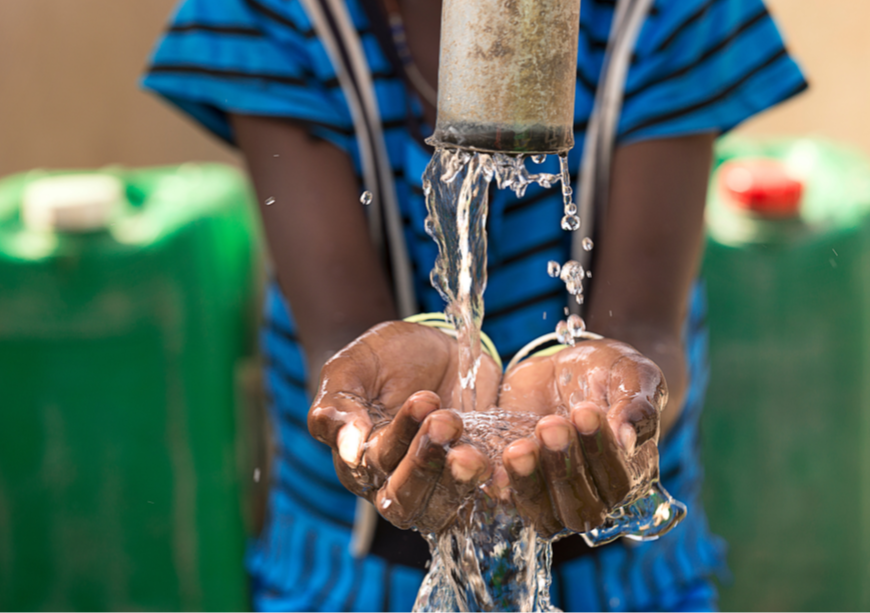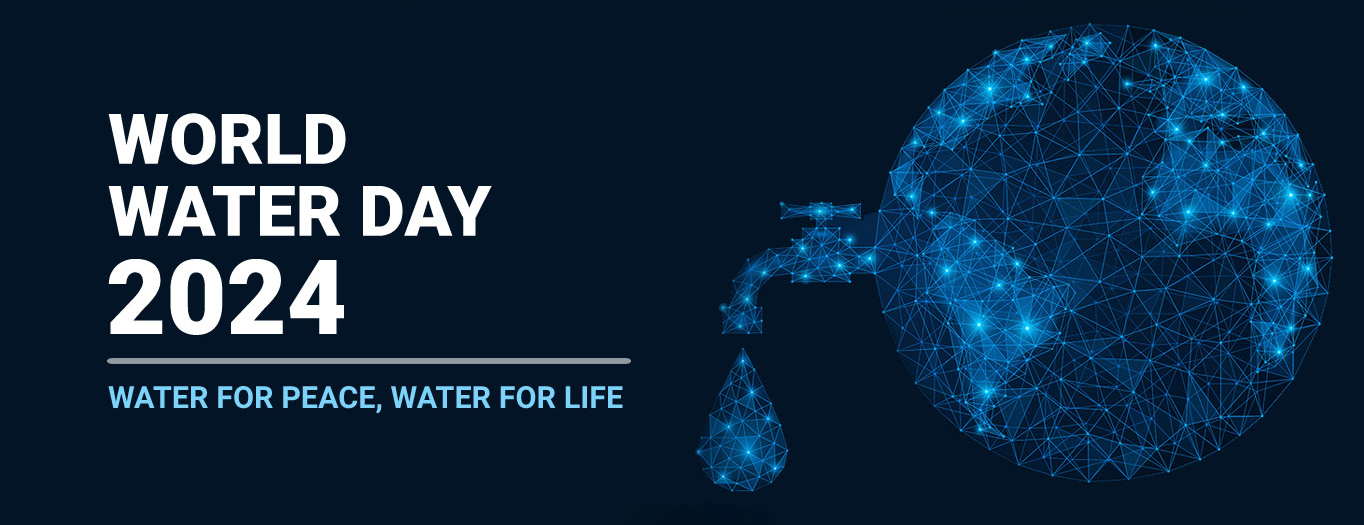
This article is a part of the essay series: World Water Day 2024: Water for Peace, Water for Life
Access to water is a critical human right, yet currently, 2.2 billion people are living without access to safe drinking water globally. In Africa, 1 in 3 persons suffer from water scarcity and 13 African countries are critically water insecure. Most African countries are not on track to achieve the water-related SDGs. About 85.5 percent of Africa’s population does not have access to safely managed drinking water and 82 percent live without access to safely managed sanitation services. According to the Global Water Security 2023 Assessment, Africa, including the Sahel region (home to Senegal, Mauritania, Mali, Burkina Faso, Niger, Nigeria, Chad, Sudan, Eritrea, and a small part of southern Algeria), the Horn of Africa (home to countries of Ethiopia, Somalia, Eritrea, Djibouti), and parts of West Africa, is the least water-secure region of the world.
Climate change is one of the most significant drivers of water stress. It affects the world’s water resources in complex ways; through the melting of ice, rising sea levels, unpredictable rainfalls, droughts, and floods. Though Africa is a marginal contributor to global greenhouse emissions (less than 4 percent), the continent is suffering disproportionately due to climate change. According to the State of the Climate in Africa 2022 Report, the African continent is warming faster than the global average. 2019 was among the three warmest years on record for the continent. Much of Africa has already warmed by more than 1°C since 1901 and climate change is likely to intensify droughts and extreme weather events in the coming decades.
The Horn of Africa is currently facing the worst drought in 40 years after five seasons of poor rainfall. The extended drought in the Horn since 2020 has caused large-scale displacement and food insecurity. About 2.7 million people have been displaced by drought and nearly 2.3 million persons have been rendered acutely food insecure including 5.1 million children who are severely malnourished due to the drought. Between 2018 and 2022, Madagascar also experienced severe drought due to deficient rainfall. This led to a significant decline in food production and famine-like conditions in several parts of the country. Droughts have also become more intense in the Sahel region.
In recent years, the region has also suffered from frequent floods which have played havoc on the lives of subsistence farmers and pastoralists and exacerbated conflict.
Climate change and droughts also have significant impacts on conflicts in Africa. Severe droughts in Africa are an existential threat to its herders and subsistence farmers who depend on rain-fed agriculture. Conflicts often erupt between farmers and herders in the Sahel region over issues around access to water and land use. The herder-farmer conflict in Africa is fuelled by resource competition, declining grazing areas, and reallocating water and land towards agriculture. Several experts also consider the Darfur conflict to be the world’s first entirely climate change-driven conflict. Sociologist Younes Abouyub argues that a complex web of factors including ethnic tensions have kept the conflict in Africa’s Sahel region alive in varying degrees since the 1980s, but the triggering factor was conflict over water and land. Similarly, climate change is exacerbating food insecurity, water scarcity, and resource competition in the Horn of Africa, one of the most vulnerable regions of the world with vast drylands, unresolved transboundary water-rights issues, and a long history of ethnic conflict and famines. Droughts also have catastrophic social implications for communities. For instance, severe drought not only led to famine-like conditions in Southern Madagascar but also heightened social unrest.
In Madagascar, armed gangs known as “dahalo” (bandits) loot food and essential supplies and kill people. Women and young girls face a higher risk of violence as they venture out to fetch water or farm.
With the rapidly growing population in most African countries, water demands will increase in the coming decades and so will water scarcity due to climate change. As a result, conflicts over water and land are also likely to intensify in the coming years. Therefore, the climate change-water stress-drought-conflict nexus in Africa needs to be broken. This requires significant investments to support climate adaptation in Africa and the building of necessary water infrastructure to enable the achievement of SDG 6. Africa is desperately in need of long-term adaptation funds. Sadly, adaptation funds have eluded the most vulnerable continent. Africa expert Michelle Gavin observes that despite ranking on top of climate vulnerability indices, countries in the Horn of Africa received less than the average amount of climate adaptation funding per capita for lower-income countries between 2010 and 2018. Many of the countries which are the worst victims of climate change are fragile economies with extremely vulnerable populations living in acute poverty. These countries lack the capabilities to invest in resilience-building and climate research. The African continent is currently battling a severe debt crisis in the aftermath of the pandemic and food crisis caused by the Ukraine-Russia conflict. As such, state capacities are further weakened.
Unless there is a marked increase in the flow of adaptation finance to Africa, its population will remain caught in the deadly web of water stress, hunger, and poverty.
Malancha Chakrabarty is a Senior Fellow and Deputy Director (Research) at the Observer Research Foundation.
The views expressed above belong to the author(s). ORF research and analyses now available on Telegram! Click here to access our curated content — blogs, longforms and interviews.




 PREV
PREV



